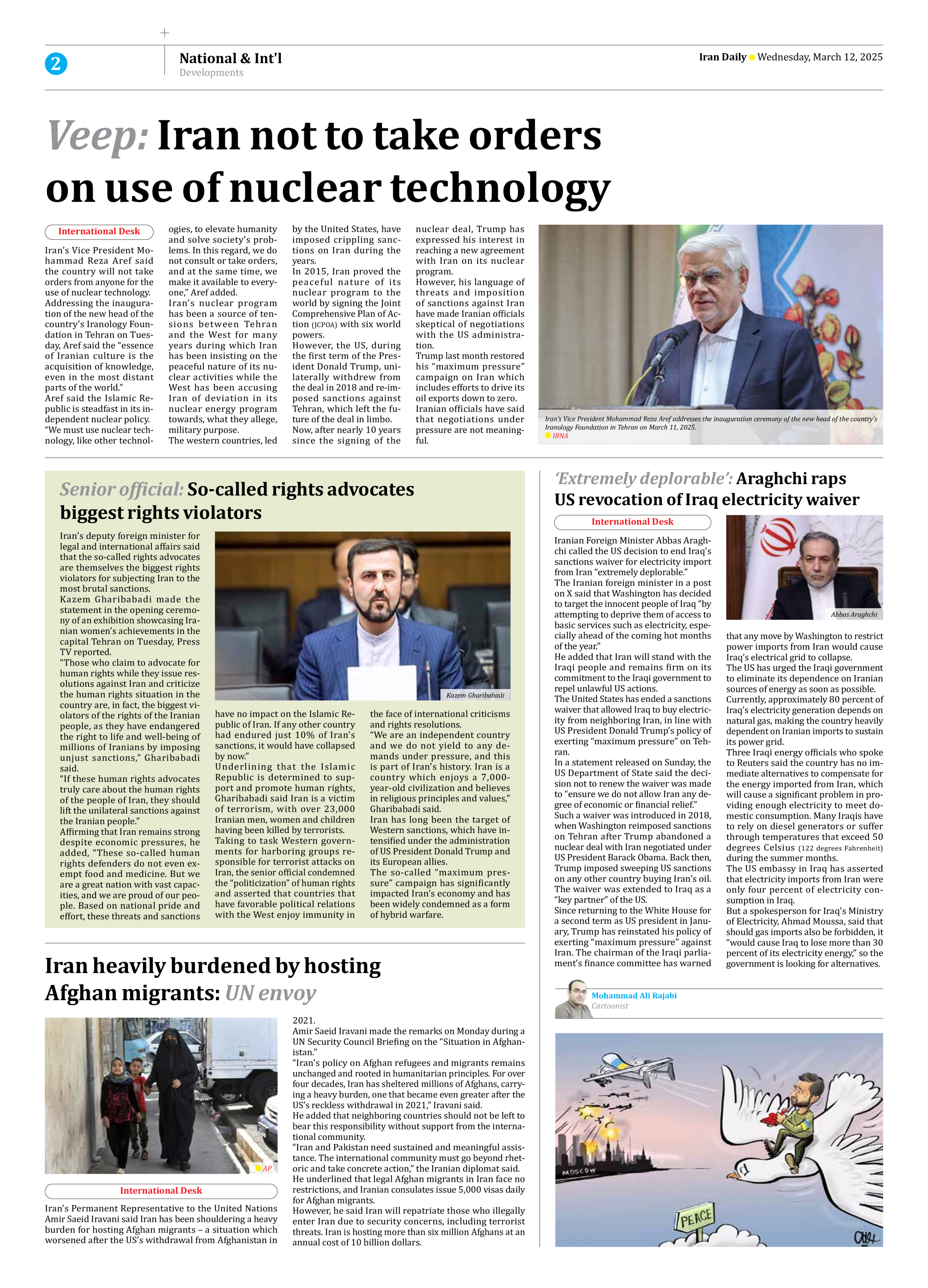
‘Extremely deplorable’: Araghchi raps US revocation of Iraq electricity waiver
Iranian Foreign Minister Abbas Araghchi called the US decision to end Iraq’s sanctions waiver for electricity import from Iran “extremely deplorable.”
The Iranian foreign minister in a post on X said that Washington has decided to target the innocent people of Iraq “by attempting to deprive them of access to basic services such as electricity, especially ahead of the coming hot months of the year.”
He added that Iran will stand with the Iraqi people and remains firm on its commitment to the Iraqi government to repel unlawful US actions.
The United States has ended a sanctions waiver that allowed Iraq to buy electricity from neighboring Iran, in line with US President Donald Trump’s policy of exerting “maximum pressure” on Tehran.
In a statement released on Sunday, the US Department of State said the decision not to renew the waiver was made to “ensure we do not allow Iran any degree of economic or financial relief.”
Such a waiver was introduced in 2018, when Washington reimposed sanctions on Tehran after Trump abandoned a nuclear deal with Iran negotiated under US President Barack Obama. Back then, Trump imposed sweeping US sanctions on any other country buying Iran’s oil. The waiver was extended to Iraq as a “key partner” of the US.
Since returning to the White House for a second term as US president in January, Trump has reinstated his policy of exerting “maximum pressure” against Iran. The chairman of the Iraqi parliament’s finance committee has warned that any move by Washington to restrict power imports from Iran would cause Iraq’s electrical grid to collapse.
The US has urged the Iraqi government to eliminate its dependence on Iranian sources of energy as soon as possible.
Currently, approximately 80 percent of Iraq’s electricity generation depends on natural gas, making the country heavily dependent on Iranian imports to sustain its power grid.
Three Iraqi energy officials who spoke to Reuters said the country has no immediate alternatives to compensate for the energy imported from Iran, which will cause a significant problem in providing enough electricity to meet domestic consumption. Many Iraqis have to rely on diesel generators or suffer through temperatures that exceed 50 degrees Celsius (122 degrees Fahrenheit) during the summer months.
The US embassy in Iraq has asserted that electricity imports from Iran were only four percent of electricity consumption in Iraq.
But a spokesperson for Iraq’s Ministry of Electricity, Ahmad Moussa, said that should gas imports also be forbidden, it “would cause Iraq to lose more than 30 percent of its electricity energy,” so the government is looking for alternatives.







